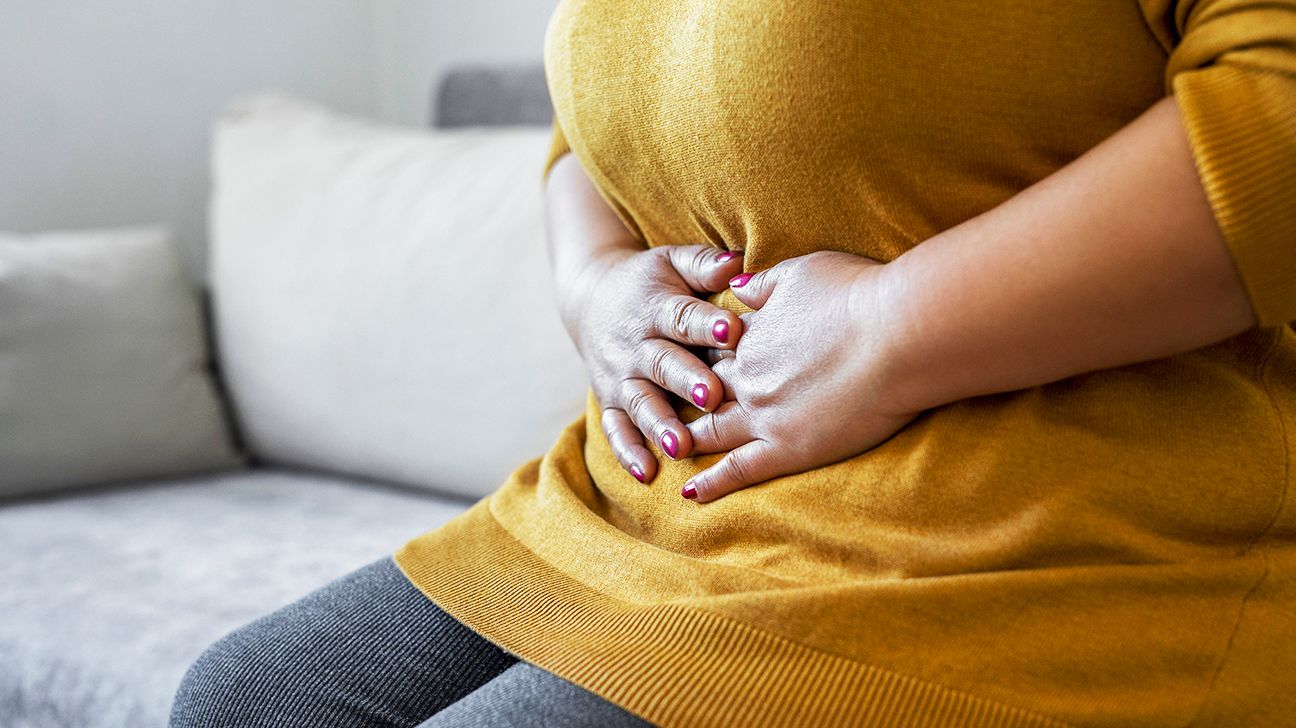Constipation may increase your risk of developing urinary tract infections (UTIs) by putting pressure on your bladder. This pressure may lead to urinary retention and bacterial growth.

Constipation is difficulty emptying your bowels, which often leads to the buildup of hard stool inside your rectum.
A UTI is an infection of your:
- bladder
- kidneys
- urethra, the passage that carries urine out of your body
- ureters, the passages that carry urine between your kidneys and bladder
Constipation and UTIs are both common. People who are prone to constipation may also be more prone to UTIs.
Here’s more information about the link between these two conditions.
Many things can cause UTIs. Some research suggests that people with constipation may be more likely to develop urinary retention or other bladder problems that might increase the risk of developing UTIs. Urinary retention is when you’re unable to fully empty your bladder.
UTIs and constipation in middle-aged and postmenopausal women
In a small
Urinary hesitancy is difficulty starting a stream of urine or keeping a stream flowing. Urinary retention and UTIs are potential complications of urinary hesitancy.
In a
- chronic constipation
- wiping back to front
- sedentary behavior
- delayed voiding of bowels
Constipation and UTIs in children
In a
Of the children recruited into the study, 47% had constipation, which is almost three times the rate seen in the larger population.
Other reasons constipation may contribute to having more frequent UTIs
It’s thought that bladder compression due to the buildup of stool can lead to pressure in your bladder that may contribute to the development of urinary retention, and urinary retention is one cause of UTIs. Urinary rete
Another reason constipation and UTIs may occur together is that the same nerve roots from your spine that control the band of muscle that closes your bladder also control the muscle that tightens the muscle in your anus.
Chronic constipation
It’s unclear exactly why constipation and UTIs occur together.
Many UTIs require treatment with antibiotics. Once a doctor prescribes antibiotics for you, it’s important to follow the entire course of medication.
Long-term, low dose antibiotic therapy is the gold standard for recurrent UTIs. It involves taking a low dose of antibiotics for at least
Cranberry products might help reduce recurrent infections, although their effectiveness is
Treatment for constipation includes:
Treatment may not be the only area to address if you have chronic constipation.
It’s important to discover the cause of your constipation. You may need to seek medical care to discover the cause. More serious medical conditions that need treatment, such as intestinal obstruction or colon cancer, can also cause constipation.
Females prone to recurrent UTIs may benefit from:
- avoiding spermicides
- wiping from front to back
- increasing fluid intake
- using vaginal estrogens when appropriate
You may be able to prevent constipation by:
- eating plenty of fiber
- drinking plenty of fluids
- getting regular physical activity
- not ignoring the urge to pass stool
Experts recommend females talk with a doctor if symptoms are getting worse or haven’t started to improve in a few days. Males should always visit a doctor if they have UTI symptoms.
Everyone should talk with a doctor about constipation if they:
- are regularly constipated
- have blood in their stool
- feel tired all the time
- have abdominal pain
Most UTIs are treatable with antibiotics. People who have recurrent infections may need to take antibiotics for more than
Constipation is very common. Lifestyle changes, such as increasing fiber, can often treat it.
Can a UTI interfere with bowel movements?
A UTI may make having a bowel movement painful, which may make you less likely to go to the bathroom when you need to. Not having a bowel movement when you need to may contribute to the development of constipation.
Can an infection cause constipation?
Some infections, such as Helicobacter pylori, can cause constipation. Constipation can also be a side effect of some medications used to treat infections.
How long does it take for a UTI to turn into a kidney infection?
A bladder infection can progress to a kidney infection within a couple of days. Kidney infection symptoms tend to come on quickly within a few hours.
Constipation may put pressure on your bladder and make you prone to urinary retention. A UTI is a potential complication of urinary retention.
UTIs and constipation are both usually treatable. It’s important to talk with a doctor if you have recurrent UTIs or frequently feel constipated.

